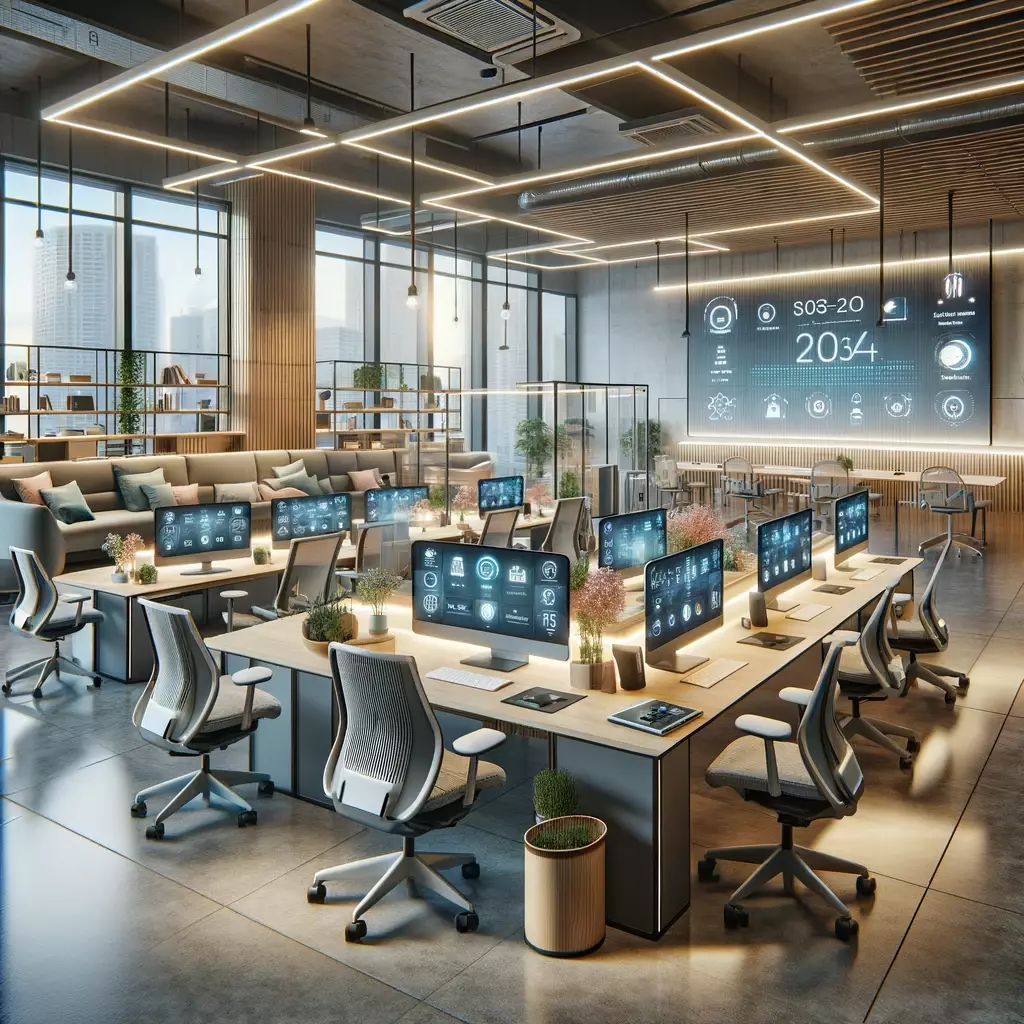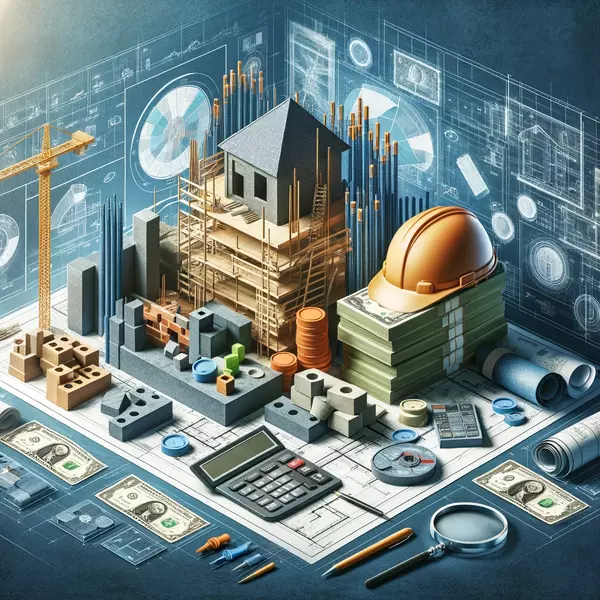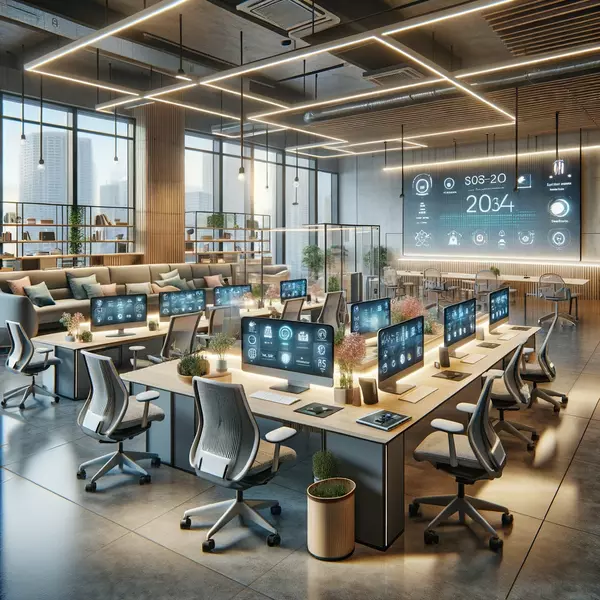Technology in Commercial Spaces

Technology in Commercial Spaces
In today's fast-paced world, technology plays a crucial role in various aspects of our lives. From communication to transportation, almost every industry has embraced technological advancements to enhance efficiency and convenience. The real estate sector is no exception, and within commercial spaces, technology has brought about significant changes and improvements.
One of the most notable advancements in commercial real estate technology is the introduction of smart buildings. These buildings utilize various technologies to optimize energy consumption, enhance security, and streamline operations. Smart buildings are equipped with sensors, automation systems, and data analytics that allow for efficient monitoring and management of energy usage. This not only reduces utility costs but also promotes sustainability, making them an attractive choice for environmentally conscious businesses.
Moreover, smart buildings offer improved security measures. Advanced surveillance systems, access control systems, and facial recognition technology ensure that only authorized individuals can enter the premises. Additionally, remote monitoring capabilities enable real-time surveillance, mitigating potential security risks and providing peace of mind to occupants.
Another technology that is revolutionizing commercial spaces is virtual reality (VR). VR allows potential buyers or tenants to virtually tour commercial spaces without physically being present. This is particularly beneficial for international clients or those with time constraints, as it eliminates the need for extensive travel. With VR, investors can explore multiple properties, assess their suitability, and make informed decisions from the comfort of their offices. This technology not only saves time but also enhances the overall efficiency of the investment process.
Furthermore, the rise of coworking spaces has been greatly facilitated by technology. Coworking spaces have become increasingly popular among freelancers, startups, and even established businesses due to their flexibility and cost-effectiveness. These spaces provide state-of-the-art technology infrastructure, including high-speed internet, video conferencing facilities, and collaborative tools. Such technological amenities create a conducive work environment, enabling individuals and teams to be productive and efficient.
Another aspect of technology in commercial spaces is the integration of Internet of Things (IoT) devices. IoT devices, such as smart thermostats, motion sensors, and occupancy detectors, enable effective energy management and resource optimization. These devices collect real-time data, allowing building managers to monitor and adjust energy consumption based on occupancy levels and preferences. This not only reduces energy wastage but also translates into significant cost savings for businesses.
The use of technology has also transformed the way commercial properties are marketed and advertised. Online listing platforms, augmented reality (AR), and 3D modeling have become popular tools for showcasing commercial spaces. These technologies provide potential buyers or tenants with a realistic and immersive experience of the property. AR, in particular, allows users to virtually place furniture and visualize the space, giving them a better understanding of its potential. By leveraging these technologies, property owners and developers can effectively market their commercial spaces and attract a wider audience.
Additionally, technology has enhanced the overall lifestyle within commercial spaces. Smart office features, such as personalized climate control and lighting systems, can be adjusted to meet the specific needs and preferences of occupants. This not only improves comfort but also increases productivity and employee satisfaction. Moreover, advancements in mobile applications and cloud-based platforms have made it easier for tenants and property managers to communicate and address maintenance issues promptly. This seamless and efficient communication leads to improved tenant experiences and higher tenant retention rates.
In conclusion, technology has significantly impacted commercial spaces, bringing about improvements in energy management, security, marketing, and overall lifestyle. Smart buildings, virtual reality, IoT devices, and online listing platforms have revolutionized the way commercial real estate operates. As technology continues to evolve, we can expect further advancements that will shape the future of commercial spaces, making them more efficient, sustainable, and appealing to investors, tenants, and businesses alike.
Categories
- All Blogs (1000)
- Airbnb Realtor (13)
- Barndominium (6)
- Buying a home (57)
- California Buyers (17)
- Commercial Broker (2)
- Commercial Property (33)
- DR Horton Homes (5)
- East Tennessee (59)
- Experienced Realtor (40)
- Experienced Tennessee Realtor (67)
- For-Sale By Owner (24)
- FSBO (17)
- Gatlinburg (30)
- Gatlinburg Cabins for Sale (2)
- Gatlinburg Rental Homes for Sale (6)
- How to pick a realtor (14)
- Industrial Property (9)
- Invesment Real Estate Gatlinburg (4)
- Investment Property Realtor (27)
- Knoxville (66)
- Knoxville Jobs (1)
- Knoxville Zillow Reviews (1)
- Listing your home (30)
- Mobile Homes (7)
- Modular Homes (9)
- Morristown (28)
- Mortgage (3)
- New build homes (24)
- Price of Homes in Knoxville (10)
- Realtor Blog Feed (3)
- Reccomended Tennessee Realtor (48)
- Refinancing (2)
- Rental Property (7)
- Retail Building sites (4)
- Retail Land for Sale (3)
- Selling a home (19)
- Short-Term Rentals (2)
- Smithbuilt Homes (2)
- Strawberry Plains (1)
- Tennessee (39)
- Tennessee Lenders (3)
- tract homes (1)
- Vacant Commercial Land (4)
- Warehouse for Sale (1)
- Zillow Agent (1)
Recent Posts










GET MORE INFORMATION
Agent | License ID: 354366
308 N PETERS RD. STE 225, KNOXVILLE, TN, 37922, United States
